

“Nice to Meet You, My Name is OO!”: Family Names in Japan
|
Miyazaki, Murakami, Hamasaki - these are some examples of Japanese family names that you might recognise. Japan is an anomaly in East Asia; where countries like China and South Korea have less than a few thousand family names in circulation, Japan has over 100,000 family names in use! But did you know that the widespread use of modern Japanese family names is something that only developed quite recently in history?
Prior to the Meiji Restoration, family names in Japan were reserved for the aristocracy, and although affluent commoners could pay to bear a surname, they could only be used in local circles and not on official documents. It was only in 1870 that previous legislations which prevented commoners from taking on family names were removed; in 1873, a new law came into effect, requiring everyone, regardless of socioeconomic status, to have a family name. As such, commoners that previously only went by one given name had to come up with a surname to be registered! They either came up with family names themselves, or approached priests to decide on an auspicious family name that would suit them. There are a few ways in which people came up with family names, but some researchers estimate that about 89.5% of modern Japanese family names are derived from place names - these include the proper names of villages, neighbourhoods, old province names, and modern prefectures. An example of such a family name is 山口/Yamaguchi, which is also the name of a prefecture in Western Japan. In addition to proper names, people could also create surnames using physical features of the local landscape. Geographical features like mountains ‘山’ and forests ‘林’, and plants like pine ‘松’ and cedar ‘杉’ could all be combined with one another, or other descriptive characters to produce surnames like 松山/Matsuyama (‘pine mountain’) and 小林/Kobayashi (‘small forest’). With an abundance of natural features littering the Japanese landscape, people choosing to adopt a surname based on their local landscape are spoilt for choice! As rice played an important role in the daily lives of Japanese, it is no wonder that there are so many surnames that contain ‘田’, the character for rice paddy. There are names like 田中/Tanaka, placing the owner of the family name directly ‘in the paddy’ (perhaps as farmers); names like 吉田/Yoshida (‘lucky paddy’) and 平田/Hirata (‘peaceful paddy’) which describe the state of the paddy; and names like 池田/Ikeda (‘paddy near the lake’) and 村田/Murata (‘village paddy’) which describe where the paddy is located. Family names could also be derived from one’s profession. The character 部 ‘guild’ appears in family names like 渡部/Watanabe and 服部/Hattori. Watanabe contains the character for 渡 ‘crossing’, and in the past, the name was used to identify a guild of boatmen that ferried customers across rivers. Similarly, Hattori, which contains the character 服 ‘clothes’, came from weavers. Other occupational names include 犬養/Inukai, which referred to those who kept and raised dogs. |
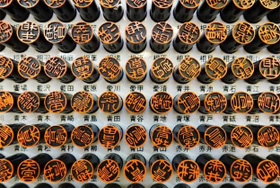 © photoAC  © Getty Images 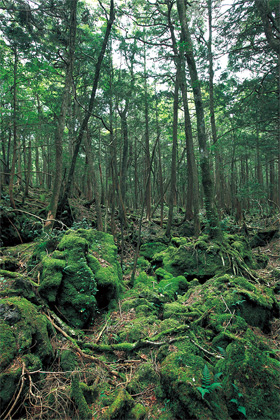 © Natori Kazuhisa 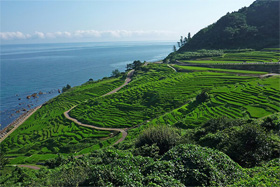 © Web Japan |
|
It can sometimes be difficult to read someone’s family name - some kanji can be pronounced more than one way (for example, the character ‘上’ is pronounced ue in the family name 井上/Inoue, but kami in 村上/Murakami), and in some cases, different families may use more archaic forms of certain kanji in their names (shima, which means ‘island’, is a common component in many family names and can be written as 島, or in more archaic forms like 嶋 and 嶌). It may be tricky at first, but if you encounter and get to know many Japanese people, you too will be able to recognise and understand how common family names are read!
Do you know what the most common surnames in Japan are? According to an online database, the top three most common surnames in Japan (as of 2021) are 佐藤/Sato, 鈴木/Suzuki, and 高橋/Takahashi. However, these names are not evenly distributed across the country. While these three surnames are the top three most common names in Tokyo, in Osaka, the most common surnames are Tanaka, 山本/Yamamoto, and 中村/Nakamura. Some family names are found in greater concentrations in certain regions and may not occur as regularly in other parts of the country. This can be said for family names in Okinawa, where the most common surnames are 比嘉/Higa and 金城/Kaneshiro - these names are not as common in other regions in Japan. Of course there are names that are rare throughout the country as well! Names that make characters stand out in manga and anime series are sometimes chosen by authors because of their rarity; the regular person was less likely to encounter someone with a family name that used unusual characters, or names with more than two kanji characters, and so when characters with names like 竈門/Kamado and 不死川/Shinazugawa (both characters are from the series ‘Demon Slayer’) appear, they leave a strong and lasting impression on readers. |
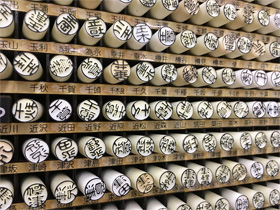 © Japan Up Close, Web Japan 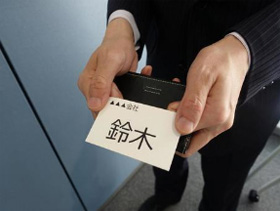 © photoAC 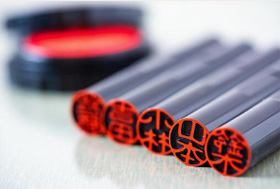 © photoAC |
|
With more than 100,000 family names in use, even the most common Japanese family name isn’t all that common. Although it is the most common surname, only about 1.8 million out of 126 million people in Japan actually bear the surname Sato! So, in a group of several Japanese people, you are likely to encounter a variety of surnames.
What Japanese family names have you encountered, and have you ever encountered any unique ones? |
Resources
|
Akcasu, A. (2015). Finding the origin and prevalence of Japanese surnames just got easier. Retrieved 27 May 2021, from https://japantoday.com/category/features/finding-the-origin-and-prevalence-of-japanese-surnames-just-got-easier |
|
Japan Creative Centre 4 Nassim Road, Singapore 258372 +65 6737 0434 / jcc@sn.mofa.go.jp https://www.sg.emb-japan.go.jp/JCC/ Nearest parking at Orchard Hotel & Delphi Orchard |
 |